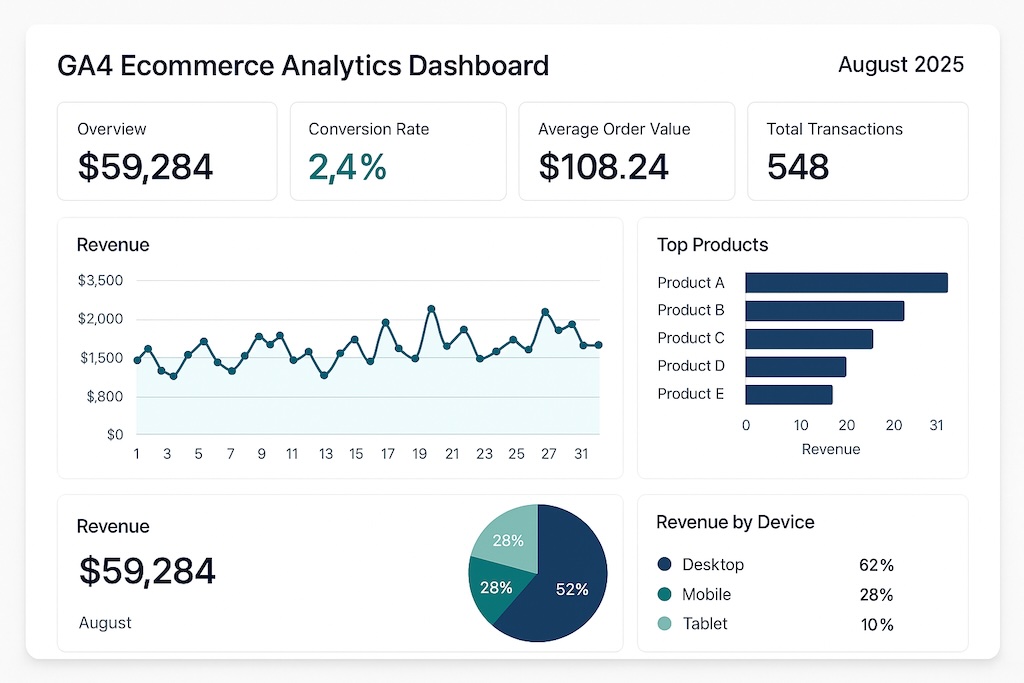Physical Address
304 North Cardinal St.
Dorchester Center, MA 02124
Physical Address
304 North Cardinal St.
Dorchester Center, MA 02124

Google Analytics 4 delivered a significant breakthrough for e-commerce businesses on August 25, 2025, by dramatically expanding access to item-scoped dimensions and metrics across all reporting tools. The update eliminates longstanding barriers that restricted how merchants could analyze product performance, making e-commerce data fully available in secondary dimensions, filters, comparisons, and custom report configurations.
This enhancement represents one of the most requested features from the e-commerce analytics community. Previously, certain e-commerce dimensions and metrics remained siloed within specific reports, forcing analysts to create workarounds or accept incomplete data views when building comprehensive dashboards. The August update removes these artificial limitations, enabling seamless integration of product-level data with broader business metrics.
The core improvement centers on universal accessibility of e-commerce dimensions—both default and custom—within GA4’s reporting ecosystem. Analysts can now layer product categories, brand information, and custom item attributes as secondary dimensions across any report type. This means traffic analysis can be segmented by product performance, audience insights can incorporate purchase behavior, and conversion funnels can include detailed item-level attribution.
Match type support has also been revolutionized, with all comparison operators now functional for e-commerce dimensions in filters and comparisons. The previous restriction to exact matches has been eliminated, except when reports include event-scoped metrics, maintaining system performance while maximizing analytical flexibility. This technical enhancement enables sophisticated product analysis using partial matches, regular expressions, and range-based filtering.
A critical technical improvement addresses conversion undercounting for businesses with multiple linked Google Ads accounts. The system now prevents attribution gaps that previously occurred when both paid and organic channels contributed to conversions, ensuring complete revenue attribution across all marketing touchpoints. This fix directly impacts ROI calculations and campaign optimization decisions for complex advertising setups.
The update introduces specialized lead generation reporting with dedicated “Lead Acquisition” and “Lead Loss” reports, supported by eight pre-configured audience templates. These audiences enable precise targeting at each funnel stage, from qualified prospects to converted customers, streamlining campaign optimization for lead-focused businesses.
Reddit Ads integration now enables seamless cost data import into GA4, automatically tracking campaign performance alongside other advertising platforms. This expansion provides marketers with comprehensive cross-platform visibility, eliminating manual data compilation and ensuring consistent attribution modeling across diverse media channels.
The timing aligns perfectly with peak retail preparation periods, allowing businesses to implement enhanced tracking before the critical fourth-quarter shopping season. Google Analytics maintains existing data processing performance standards while expanding functionality, ensuring that enhanced capabilities don’t compromise system stability or report generation speed.
For e-commerce businesses, these improvements eliminate the need for complex workarounds and third-party tools, consolidating comprehensive product analytics within GA4’s native reporting infrastructure.
Source: https://ppc.land/google-analytics-enhances-ecommerce-data-functionality/